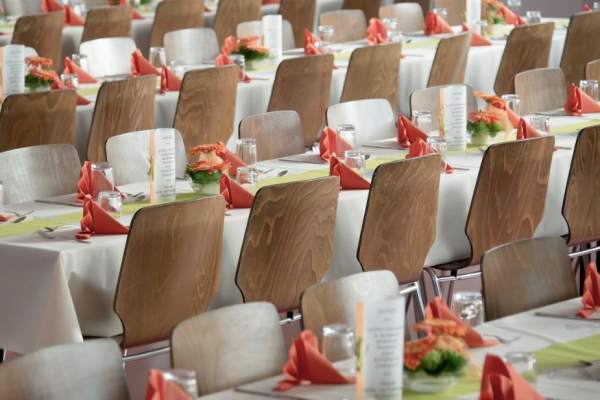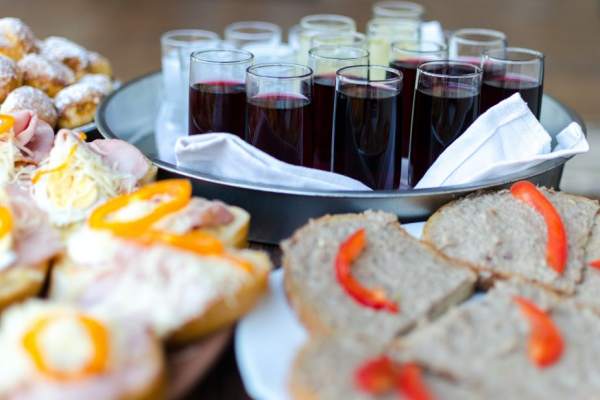Navigating Event Costs: How to Create an Effective Budget for Your Event
Last Updated on November 29, 2023 by Project Party
Planning a successful event is akin to conducting an orchestra – every detail, no matter how small, plays a crucial part in the symphony of success. One of the most critical aspects of this planning process is meticulous financial orchestration, otherwise known as budgeting. A well-structured event budget not only sets the stage for a smooth planning process but also ensures the event doesn’t hit any discordant notes in the form of unexpected expenses. In this article, we will take you on a guided tour through the various cost categories you need to master for effective event budgeting.
Before diving into the specifics of cost categories, it’s essential to set the broader context of your event – its purpose, date, time, estimated attendee list, and potential venues. These foundational factors will shape your budget outline. For instance, a large-scale corporate event requires a budget that accommodates substantial costs such as venue hire, catering, decor, entertainment, and invitations. On the flip side, smaller gatherings like birthday parties may require a pared-down budget focusing on basics like food, drinks, and dessert.
To help get your bearings, let’s delve into the most common and most expensive cost categories you’ll likely encounter in event planning. This will ensure your event is orchestrated towards a harmonious success.
Mastering Your Budget for Event Planning: A Comprehensive Guide on Cost Categories
Welcome to our comprehensive guide, ‘Mastering Your Budget for Event Planning: A Deep Dive Into Cost Categories’. In this blog, we will dissect the primary categories of your event budget, ensuring you have a complete grasp of how to effectively manage your budget tracking sheet and understand your total expenditure. If number crunching and planning are your cup of tea, let’s dive right in! The main categories we’ll be exploring include:
- Food and Beverage
- Venue Rental
- Entertainment
- Invitations
- Décor
- Transportation
- Photography/Videography
- Party Favours/Gift Bags, and
- Event Insurance.
In the following sections, we’ll delve into each category in detail, providing you with a clear picture of what specific expenses you need to account for. Let’s start this budgeting journey!
1. The Art of Catering – Food and Beverage
When mapping out a budget for event planning, food and drink often claim the lion’s share of the expenses. Whether you’re hosting a formal sit-down dinner or a casual buffet-style gathering, the culinary aspect requires meticulous attention. For an elegant sit-down dinner, your budget must cater to not just the food and beverages, but also the service staff and rental items such as plates, glassware, and silverware. Similarly, a buffet-style event, while seemingly less formal, also demands a thorough budgeting exercise. You’ll need to account for the cost of food, drinks, and necessary rentals like tables and chairs. And let’s not overlook the star attraction of many events – the cake!
Let’s delve into the key components that you need to consider when budgeting for food and drink:
- Event Type: The nature of your event (sit-down dinner, buffet, cocktail party, etc.) will significantly influence your catering budget.
- Guest Count: The number of guests attending your event directly impacts the quantity of food and drink required.
- Menu Complexity: The complexity of your menu, from hors d’oeuvres and main courses to desserts, will affect the overall cost.
- Beverage Selection: Depending on your event, you may need to budget for both alcoholic and non-alcoholic beverages.
- Rental Necessities: Don’t forget to factor in the cost of hiring items like plates, silverware, glassware, and more.
- Service Staff: Last but not least, consider the cost of waitstaff to ensure your guests are well-served throughout the event.
Budgeting for each of these elements will ensure your guests enjoy a gastronomic experience that leaves them raving about your event, without leaving you with an unexpected bill.

2. Securing the Perfect Space – Venue Hire
Securing the perfect venue is a key aspect of your budget for event planning. Depending on the nature of your event, you may be looking at hiring a hotel, banquet hall, or an outdoor space. Each comes with its own set of costs, including rental fees for the space itself and any additional equipment like audiovisual gear or furniture required to make your event a success. For outdoor events, there could be added expenses for essentials like tents, tables, and chairs.
Now, let’s dive into the critical factors to consider when budgeting for venue hire:
- Event Nature: The type of event you’re hosting (concert, comedy show, DJ night) can significantly influence the choice and cost of the venue.
- Guest Capacity: The number of guests you plan to host will determine the size and thus the cost of the venue.
- Entertainment: Budget for performers or actors if your event includes live entertainment.
- Rental Extras: Don’t forget to account for the cost of additional rental items such as sound equipment or stage setups.
- Accessibility: Consider the location of the venue and its accessibility for your guests. If it’s in a remote or hard-to-reach area, you might have to budget for transportation costs.
By carefully considering these aspects, you can ensure you choose a venue that fits not only your event’s needs but also your budget.
3. Creating the Perfect Ambience – Entertainment
Entertainment is a crucial element that can make or break your event. It’s often an aspect that leaves a lasting impression on your guests, but it can also be one of the most significant expenditures in your budget for event planning. Whether you’re looking to hire a band to get your guests grooving or a DJ to keep the beats flowing, you’ll need to account for their fee and the cost of necessary sound equipment rentals. Additionally, if your event calls for a touch of drama or interactive fun, you may need to budget for performers or actors.
Let’s explore the key factors to consider when budgeting for entertainment:
- Type of Entertainment: The kind of entertainment you choose (band, DJ, performers) will largely determine the cost.
- Equipment Rental: Don’t forget to include the cost of renting sound equipment or any other necessities for your chosen entertainment.
- Performer Fees: Factor in the fees of the performers or actors if they are part of your event’s entertainment lineup.
- Licensing and Permits: If your entertainment includes live music or performances, you may need to budget for necessary licenses or permits.
- Accommodation and Travel: If your performers are travelling from a distance, consider the costs of their accommodation and travel expenses.
By budgeting for entertainment, you can ensure your event is not only memorable for your guests but also aligns with your financial plan.

4. The First Impression – Invitations and Stationery
Invitations and stationery are the first tangible touchpoints your guests will have with your event, thus making them a vital, albeit often overlooked, part of your budget for event planning. If you opt for traditional physical invitations, costs such as printing and postage need to be accounted for. On the other hand, even if you choose the digital route, you may want to consider engaging a professional designer to create a unique and impressive e-invite.
Let’s delve into the key considerations when budgeting for invitations and stationery:
- Event Type: The nature of your event (wedding, birthday party, corporate gathering) will influence the style and therefore the cost of your invitations.
- Guest Count: The number of guests you plan to invite directly impacts the quantity of invitations required, affecting both printing and postage costs.
- Printing Expenses: Factor in the cost of printing, which can vary based on the quality of the paper and the complexity of the design.
- Postage Charges: Don’t forget to account for postage costs, particularly for international invites.
- Design Fees: If you’re hiring a professional designer, include their fee in your budget.
By carefully estimating these costs, you can ensure that your invitations and stationery make a stunning first impression without breaking the bank.
5. Setting the Scene – Décor
Décor is an essential component of any event, contributing significantly to the overall ambience and guest experience. Especially if your chosen venue requires a transformation, décor becomes a significant line item in your event budget. Costs can range from event rentals such as table linens, chair covers, and centrepieces to hiring professionals like event planners or florists who can bring your vision to life. Moreover, decorations like balloons, banners, and lights, while seemingly minor, can quickly add up.
Let’s unpack the key aspects to consider when budgeting for décor:
- Event Type: The nature of your event (wedding, holiday party, gala) will dictate the style and extent of décor required, influencing the cost.
- Guest Count: The number of guests you plan to host can impact the quantity of décor items needed.
- Professional Fees: If you’re engaging an event planner or florist, factor in their fees.
- Rental Items: Account for the cost of hiring décor items like table linens, chair covers, and centrepieces.
- Additional Decorations: Don’t overlook the cost of additional decorations such as balloons, banners, and lights.
By considering these factors, you can create a stunning setting for your event without overshooting your budget.
6. Ensuring Smooth Transits – Transportation
Transportation plays a crucial role in the seamless execution of any event, particularly if you’re organizing a large-scale gathering or hosting guests from out of town. It’s essential to factor in costs associated with renting transportation like buses or vans, as well as additional expenses such as fuel and parking. These elements, while often overlooked, can significantly impact your overall event budget.
Let’s delve into the key considerations when budgeting for transportation:
- Event Type: The nature of your event, such as a large gathering or an event with out-of-town guests, will influence the scale and type of transportation required.
- Guest Count: The number of guests attending your event directly affects the quantity and size of vehicles needed.
- Vehicle Rental: Factor in the cost of hiring transportation, such as buses or vans.
- Fuel and Parking: Don’t forget to account for additional costs like petrol for the vehicles and parking charges, if applicable.
- Accessibility and Distance: Consider the location of your event venue. If it’s far from where most of your guests reside, you may need to budget for longer travel times and higher transportation costs.
By carefully considering these aspects, you can ensure that all your guests arrive at and depart from your event smoothly and comfortably, without causing a dent in your budget.
7. Capturing Memories – Photography and Videography
Photography and videography are key elements in preserving the memories of any event. Hiring professional photographers or videographers ensures that every special moment is captured beautifully. However, their fees, along with the cost of renting necessary equipment like cameras, lenses, and lights, need to be included in your event budget.
Let’s explore the main aspects to consider when budgeting for photography and videography:
- Event Type: The nature of your event (wedding, birthday party, corporate gathering) will influence the style and extent of photography/videography required, which, in turn, impacts the cost.
- Guest Count: The number of guests you plan to host can affect the amount of coverage required and the necessary equipment.
- Photographer/Videographer Fees: Factor in the cost of hiring professional photographers or videographers, which can vary based on their experience and portfolio.
- Equipment Rental: Don’t forget to account for the cost of renting necessary equipment like cameras, lenses, and lights.
- Post-Production: Remember to include the cost of post-production work. This can involve editing photos and videos, creating albums or digital galleries, and any other finishing touches that will make your event memories shine.
By considering these factors, you can ensure that all the precious moments of your event are captured impeccably without exceeding your budget.
8. Token of Appreciation – Party Favours and Gift Bags
Party favours and gift bags are a wonderful way to show your appreciation to your guests and make them feel special. They serve as a memento of the event, reminding attendees of the good times they had. However, the cost for these items can add up, especially if you’re hosting a large number of guests or opting for personalized or high-end gifts.
Let’s delve into the key considerations when budgeting for party favours and gift bags:
- Event Type: The nature of your event (wedding, corporate gathering, birthday party) will influence the kind of favours or gifts that would be appropriate, thereby impacting the cost.
- Guest Count: The number of guests attending your event directly affects the quantity of favours or gift bags needed.
- Cost Per Item: Consider the cost per favour or gift bag. This could vary significantly based on what you choose to include.
- Customization: Personalized gifts often cost more than generic ones. If you plan to customize your favours or gift bags, factor this into your budget.
- Packaging and Presentation: Don’t forget the cost of packaging materials like gift bags, boxes, or wrapping paper. The presentation can add a significant amount to the overall cost of your party favours or gift bags.
By carefully considering these aspects, you can create thoughtful tokens of appreciation for your guests without overshooting your budget.

9. Playing It Safe – Event Insurance
Event insurance is an essential consideration for any organized gathering for an event planner. It provides a safety net against unforeseen circumstances that could lead to financial loss, such as event cancellation or liability claims. The type of event, the number of guests, and the extent of coverage required are all factors that can influence the cost of event insurance.
Let’s explore the main aspects to consider when budgeting for event insurance:
- Event Type: The nature of your event (wedding, concert, festival) can affect the type of insurance coverage needed and its cost. High-risk events may require more comprehensive coverage.
- Guest Count: The number of guests attending your event can influence the liability coverage required. More guests typically mean a higher potential for claims, thereby increasing the insurance cost.
- Liability Coverage: This covers any claims made against you by guests who may get injured or suffer property damage at your event. The cost of this coverage depends on the risk level of your event.
- Cancellation Coverage: This covers losses if your event has to be cancelled or postponed due to unforeseen circumstances like bad weather or illness. The cost depends on the scale and nature of the event.
- Vendor Coverage: Consider the insurance coverage for your vendors. If they don’t have their insurance, you might need to include them in your policy, which could add to the overall cost of your event insurance.
By considering these factors, you can ensure you have adequate insurance coverage for your event, providing peace of mind and financial protection, without exceeding your budget.
Wrapping Up: Budgeting for Successful Event Planning
Crafting a meticulous budget for event planning before diving into the process is a surefire way to maintain control over your expenditures. This proactive approach aids in monitoring all event-related costs, thereby preventing any financial surprises. Our comprehensive checklist can be a valuable tool in ensuring no critical event expenses slip through the cracks. Moreover, obtaining quotes from potential vendors early in the game allows for comparative analysis, ensuring you secure the best value.
If you’re new to this, consider enlisting the services of a professional event planner. Their industry knowledge and connections often translate into discounts, and they hold a clear understanding of realistic event costs. Remember, the ultimate goal is to host an unforgettable event that leaves your guests buzzing with delight for years. The satisfaction of witnessing your successful event unfold on the dance floor will make all the planning and budgeting efforts worthwhile.
Now, armed with a deeper understanding of the categories involved in an event budget, you’re ready to draft your budget tracking sheet. Don’t forget to include all the categories discussed above, alongside any other costs unique to your event. By adhering to these strategies, you’re setting the stage for a successful event, all while staying within your budget for event planning.
Related Posts
Everything You Need to Know About Event Planning Companies: Pros and Cons
Event planning companies are a great way to bring your special event or wedding to life. From helping you pick the perfect venue to hiring vendors…
January 30, 2023
The Ultimate Free Corporate Event Planning Checklist
The corporate event. A time to network, schmooze, and drink on someone else's dime. But before you can enjoy the fruits of your labour, you've got to…
June 23, 2022
The Ultimate Free Wedding Planning Checklist
There are a lot of moving parts when it comes to planning a wedding. From booking the venue to hiring the catering company, there's a lot to…
June 16, 2022


